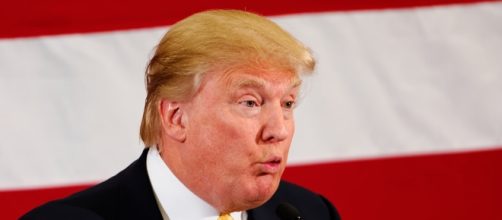Escalating rhetoric over North Korea's nearly-recognized nuclear ambitions reached new heights -- or new lows -- this week as Donald Trump promised "fire, fury, and frankly power, the likes of which the world has never seen before" if the regime doesn't stop threatening the United States.
As others within the Administration scramble to cool concerns at home and abroad, the crisis has given the president and some of his deputies the opportunity to flex what they see as America's unparalleled global dominance in the new Trumpian era.
'WE WERE A SUPERPOWER'
One of the loudest voices in recent days has been Sebastian Gorka, Trump's deputy advisor on national security issues.
With a Ph.D. in political science from his native Hungary, Gorka is a professed expert in radical jihadism and was one of the cheerleaders for Trump's Muslim travel ban. At least twice since May, he was expected to leave the White House, but instead, he has emerged most recently proponent of America's role as a global "hyperpower."
"We are not just a superpower," he said on Fox and Friends on Wednesday morning, "We were a superpower. We are now a hyperpower. Nobody in the world, especially not North Korea, comes close to challenging our military capabilities."
What is a hyperpower?
The term "hyperpower" was coined in the late 1990s to describe a world-dominating country or empire -- one that projects its power around the world and has no superior in terms of military and economic might.
In her 2007 book "Day of Empire: How Hyperpowers Rise to Global Dominance -- And Why They Fail," Yale Law professor Amy Chua identifies seven empires that fit the definition of a "hyperpower" over the course of history; the Persian Empire (559-330 CE), the Roman Empire, China's Tang Dynasty (618-907 CE), the Mongol Empire, the Dutch in the 17th Century, the British Empire until the mid-20th Century, and the United States since the collapse of the Soviet Union.
What goes up must come down
As Chua's list shows, most hyperpowers dominate for decades or even centuries. But just twenty years into our tenure, some experts see the United States as already a hyperpower in decline.
In May 2017, Defense Intelligence Agency Director Lt.
Gen. Vincent R. Stewart told the Senate Armed Services Committee in written testimony that "foreign militaries are emerging with near-peer and, in some cases, peer capabilities" compared to our military. Global adversaries have studied our methods and adapted to them. China and Russia, in particular, are increasingly competitive in terms of military growth.
While we still have the world's biggest economy, we will likely be eclipsed in coming decades by China and India.
We're even failing Chua's test of a hyperpower. She argues that dominant empires flourished by harnessing diversity, using the energy and innovation of 'outsiders' brought into the fold by conquest, expansion, and immigration. Yet Trump's nativist stance toward immigration seeks to keep the energy and innovation outside our borders.
Shh... Don't tell Trump
Trump seems to see none of this.
Around the time Gorka was on Fox News warning North Korea "don't test America and don't test Donald J. Trump," Donald J. Trump was busy tweeting:
"My first order as President was to renovate and modernize our nuclear arsenal. It is now far stronger and more powerful than ever before....Hopefully we will never have to use this power, but there will never be a time when we are not the most powerful nation in the world!"
Of course, Trump's first order as president was actually on health care repeal and a trillion-dollar modernization of our nuclear arsenal began under Barack Obama was won't be complete for a decade or more.
And even if we aren't there already, there will come a time when we are not the most powerful nation in the world.


